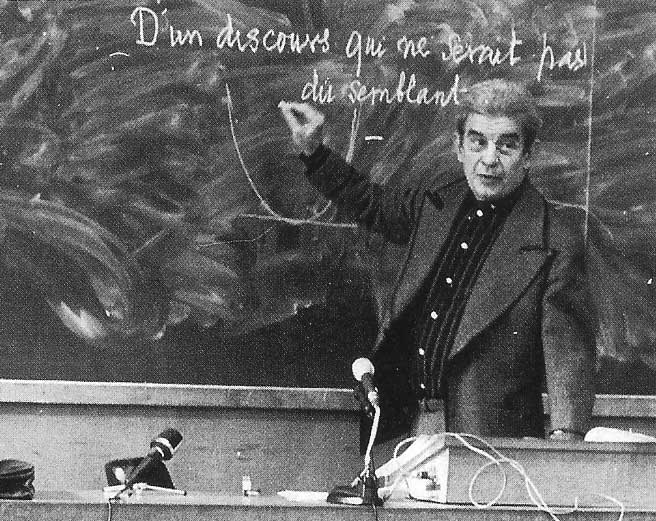2/11: Jacques Lacan, Paris, May 1968
Turkle, Sherry. “The Social Roots of Psychoanalytic Culture” and “‘Reinventing’ Freud in France” in Psychoanalytic Politics: Jacques Lacan and Freud’s French Revolution.
(Additionally, here is the introduction to the book, for those who are curious.)
We will be back in our old stomping grounds, Harper 125. Monday, February 11th, 7:00pm
Discussion questions:
2. Turkle puts forth a theory about the uptake of psychoanalysis in times of social unrest: "...with mobility of place, profession, and status, and a new instability of values, old ways of looking at the world no longer apply. Individuals are thrown back on themselves and may be more receptive to theories such as psychoanalysis which search for meaning in dreams, wishes, fears, and confusions (31)." This is in stark contrast to epochs of social stability, in which "family, ancestry, and religion" become stable reference points by which personal meaning is understood. Yet, further, these aforementioned "structural" categories (family, ancestry, and religion) become re-conceived when the locus of the individual becomes the point of theoretical intervention. In the accounts we have read of the U.S. (mainly Zaretsky) and this new account of France, what changes in the way in which the individual relates to his or her social milieu? Is this sufficient for describing the prevalence of ego psychology in America and Lacanian analysis in France? What other conditions might we take into account? (I have in mind the sociology of therapeutic practices, see page 42)
3. The uptake of Lacanian theory reveals a bifurcation between analytic theory and practice that we have been highlighting and calling into question in our historical investigations. While many "felt that his theoretical perspective had brought them back to fundamental truths which served as sources of renewal in their lives as analysts," this was offset by a mistrust in Lacan as a clinician (59). Yet, if psychoanalysis is a form of knowledge based in practice, how can theoretical knowledge coexist with a domain of technical application in which it is deemed unfit?
4. This question is more open-ended: to what extent is psychoanalysis itself a form of political participation, and how does actual political participation become figured in analytic practice? Turkle spends the latter part of "'Reinventing' Freud in France" looking at the ways in which this question was debated by analysts around the May 1968 events. Since many argue that Freud's project was part of a larger social upheaval in fin de siècle Vienna, this question is inscribed into the very origins of psychoanalytic discourse.





